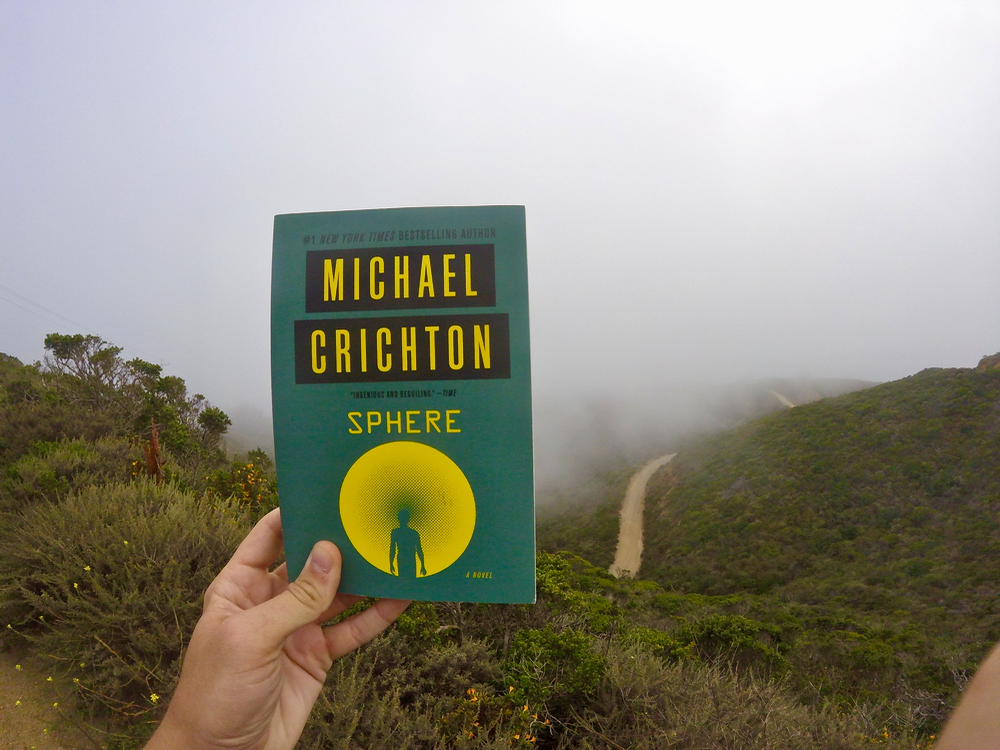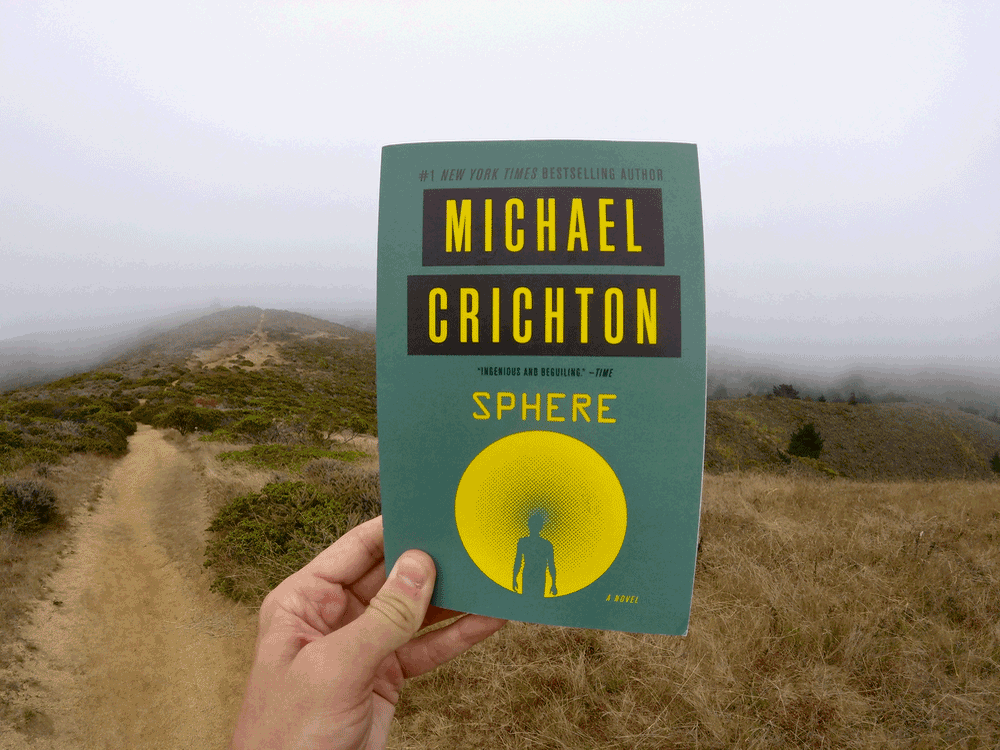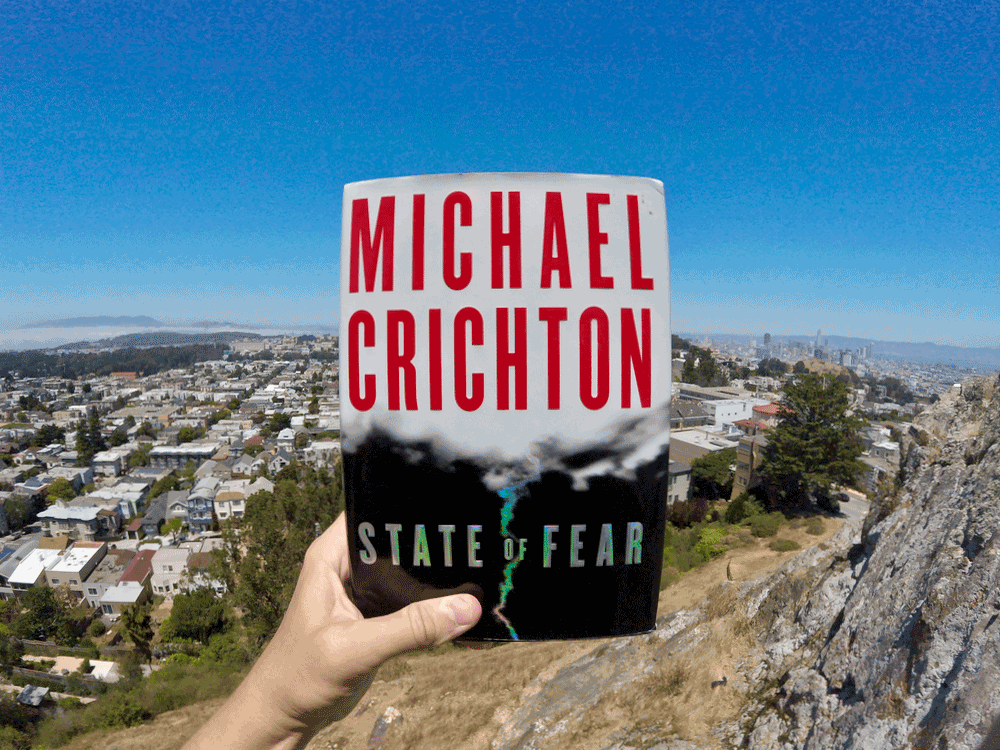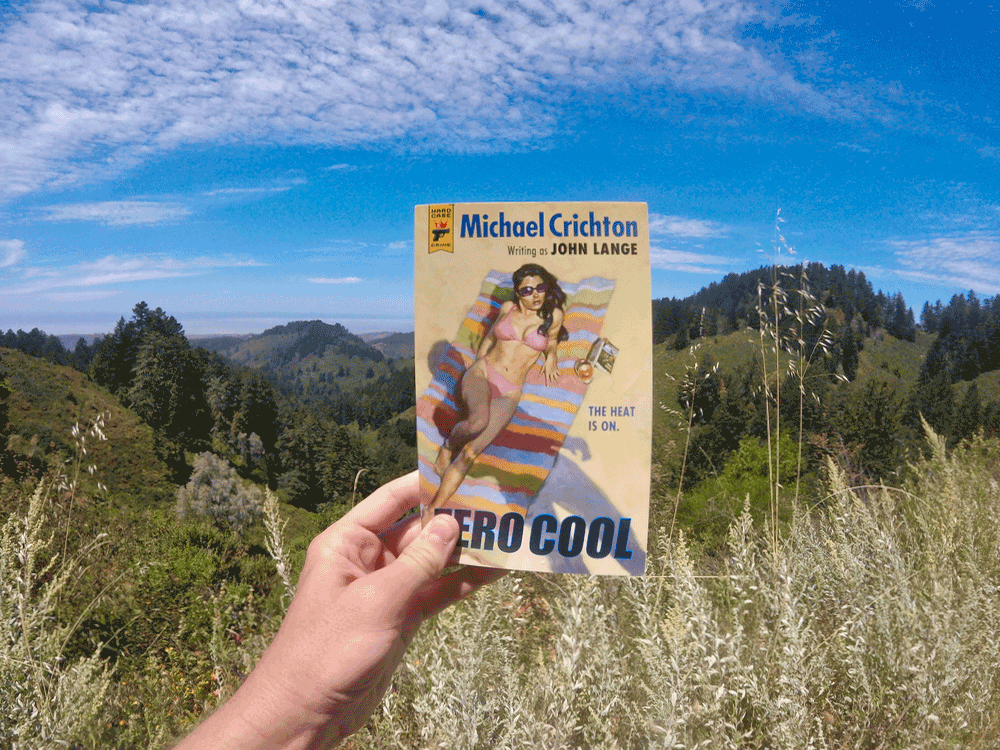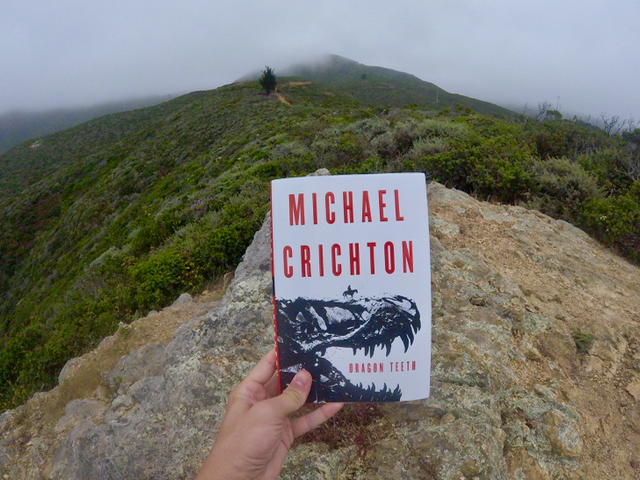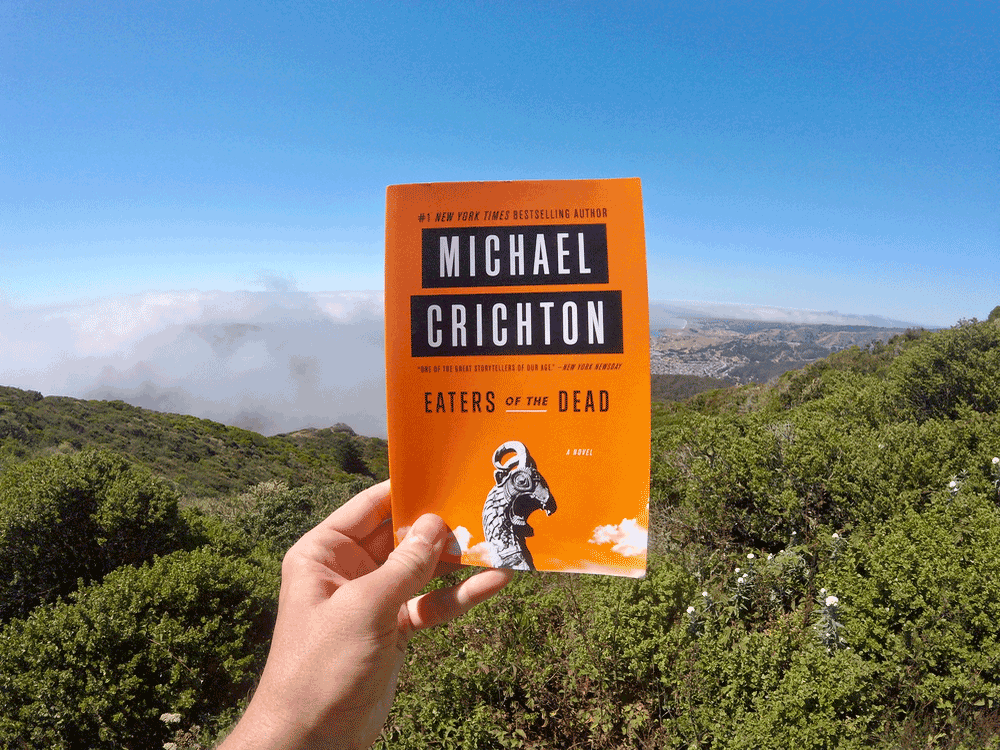| "The sphere was polished, silent, closed. They stood around it and stared at themselves, distorted in reflection." — Michael Crichton, Sphere |
Norman Johnson thought it was just another plane crash. As a practicing psychologist, he always got middle-of-the-night calls summoning him to crash sites to begin the survivors' mental recoveries. But this time the helicopter was military. And it flew him towards Fiji. No wreckage. Just blue Pacific as far as the eye could see.
The psychologist isn't the only one brought to the floating US Navy base guarded by sixteen destroyers. There's a genius mathematician, an astrophysicist, a zoologist, and marine biologist. And 1000 feet beneath them on the ocean floor, reachable by submarine, is an enormous spacecraft. It's been there for at least 300 years. And the US Navy wants them to go inside.
The psychologist isn't the only one brought to the floating US Navy base guarded by sixteen destroyers. There's a genius mathematician, an astrophysicist, a zoologist, and marine biologist. And 1000 feet beneath them on the ocean floor, reachable by submarine, is an enormous spacecraft. It's been there for at least 300 years. And the US Navy wants them to go inside.
WHY I LOVE IT
Crichton's writing isn't Shakespeare but it goes down like sugar. His consistent ability to create a unique setting and gripping situation is why Steven Spielberg famously called him the "High Priest of High Concept." (Spielberg adapted two of Crichton's novels, Jurassic Park and The Lost World).
In Sphere, Crichton architects another fantastic situation: a team of scientists from various fields encountering extraterrestrial life. The spaceship, the attempts to communicate with the lifeform, and the backstory to how it arrived on earth are the external mysteries, but equally synced are the internal journeys of the team. Their intellectual and emotional landscapes are just as alien and dangerous. The sphere they find is both a window and a mirror, reflecting some of the most unknown parts of the universe: ourselves. [JG]
P.S. If you can, avoid the movie, at least until you've read the book. If you've already seen it, just remember not to judge a book by its movie.
In Sphere, Crichton architects another fantastic situation: a team of scientists from various fields encountering extraterrestrial life. The spaceship, the attempts to communicate with the lifeform, and the backstory to how it arrived on earth are the external mysteries, but equally synced are the internal journeys of the team. Their intellectual and emotional landscapes are just as alien and dangerous. The sphere they find is both a window and a mirror, reflecting some of the most unknown parts of the universe: ourselves. [JG]
P.S. If you can, avoid the movie, at least until you've read the book. If you've already seen it, just remember not to judge a book by its movie.
ABOUT THE AUTHOR
| Michael Crichton (1942-2008) remains the only writer to have a number one book, movie, and TV show in the same year. His novels include Jurassic Park, The Lost World, Eaters of the Dead, State of Fear, and Dragon Teeth among others. Collectively his works have sold over 200 million copies worldwide, been translated into thirty-eight languages, and provided the basis for fifteen films. He was also the director of Westworld, The Great Train Robbery, and Looker. |
FAVORITE QUOTES
5. "Norman turned, and stepped into the spacecraft."
4. "They're intellectuals, he thought, and their characteristic defense mechanics is intellectualism. Talk. Ideas. Abstractions. Concepts. It was a way of getting distance from the feelings of sadness and fear and being trapped. Norman understood the impulse: he wanted to get away from these feelings himself."
3. "He felt a shuddering chill. Beth with the lack of self-esteem, her deep core of self-hate, had gone into the sphere, and now she was action with the power of the sphere, but without stability of her thoughts. Beth saw herself as a victim who struggled against her fate, always unsuccessfully. Beth was victimized by men, victimized by the establishment, victimized by research, victimized by reality. In every case she failed to see how she had done it to herself. And she had put explosives all around the habitat..."
2. ""Understanding is a delaying tactic." Stein used to get angry about that. When the graduate students would intellectualize going on and on about patients and their problems, he would interrupt in annoyance, "Who cares? Who cares whether we understand the psychodynamics in this case? Do you want to understand how to swim, or do you want to jump in and start swimming? Only people who are afraid of the water want to understand it. Other people jump in and get wet.""
1. "The sphere was polished, silent, closed. They stood around it and stared at themselves, distorted in reflection."
4. "They're intellectuals, he thought, and their characteristic defense mechanics is intellectualism. Talk. Ideas. Abstractions. Concepts. It was a way of getting distance from the feelings of sadness and fear and being trapped. Norman understood the impulse: he wanted to get away from these feelings himself."
3. "He felt a shuddering chill. Beth with the lack of self-esteem, her deep core of self-hate, had gone into the sphere, and now she was action with the power of the sphere, but without stability of her thoughts. Beth saw herself as a victim who struggled against her fate, always unsuccessfully. Beth was victimized by men, victimized by the establishment, victimized by research, victimized by reality. In every case she failed to see how she had done it to herself. And she had put explosives all around the habitat..."
2. ""Understanding is a delaying tactic." Stein used to get angry about that. When the graduate students would intellectualize going on and on about patients and their problems, he would interrupt in annoyance, "Who cares? Who cares whether we understand the psychodynamics in this case? Do you want to understand how to swim, or do you want to jump in and start swimming? Only people who are afraid of the water want to understand it. Other people jump in and get wet.""
1. "The sphere was polished, silent, closed. They stood around it and stared at themselves, distorted in reflection."
YOU MAY ALSO LIKE

